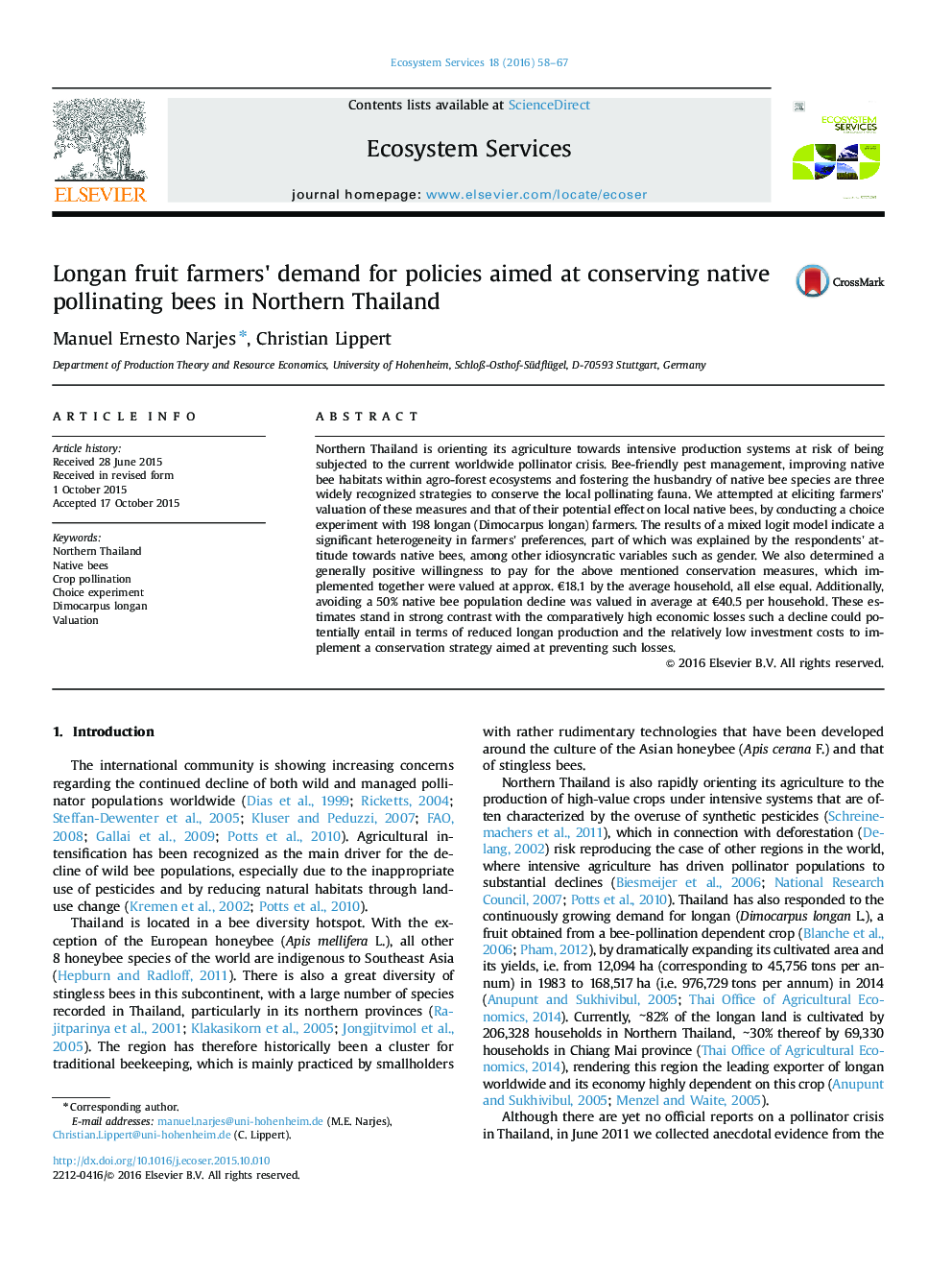| Article ID | Journal | Published Year | Pages | File Type |
|---|---|---|---|---|
| 6556578 | Ecosystem Services | 2016 | 10 Pages |
Abstract
Northern Thailand is orienting its agriculture towards intensive production systems at risk of being subjected to the current worldwide pollinator crisis. Bee-friendly pest management, improving native bee habitats within agro-forest ecosystems and fostering the husbandry of native bee species are three widely recognized strategies to conserve the local pollinating fauna. We attempted at eliciting farmers' valuation of these measures and that of their potential effect on local native bees, by conducting a choice experiment with 198 longan (Dimocarpus longan) farmers. The results of a mixed logit model indicate a significant heterogeneity in farmers' preferences, part of which was explained by the respondents' attitude towards native bees, among other idiosyncratic variables such as gender. We also determined a generally positive willingness to pay for the above mentioned conservation measures, which implemented together were valued at approx. â¬18.1 by the average household, all else equal. Additionally, avoiding a 50% native bee population decline was valued in average at â¬40.5 per household. These estimates stand in strong contrast with the comparatively high economic losses such a decline could potentially entail in terms of reduced longan production and the relatively low investment costs to implement a conservation strategy aimed at preventing such losses.
Related Topics
Life Sciences
Agricultural and Biological Sciences
Agricultural and Biological Sciences (General)
Authors
Manuel Ernesto Narjes, Christian Lippert,
